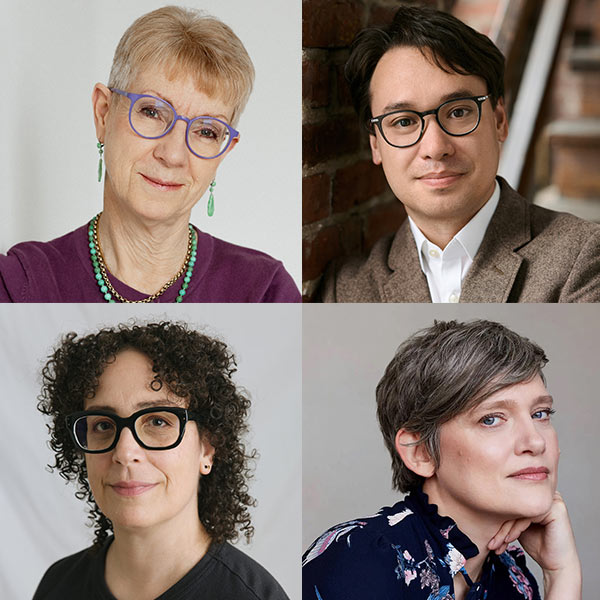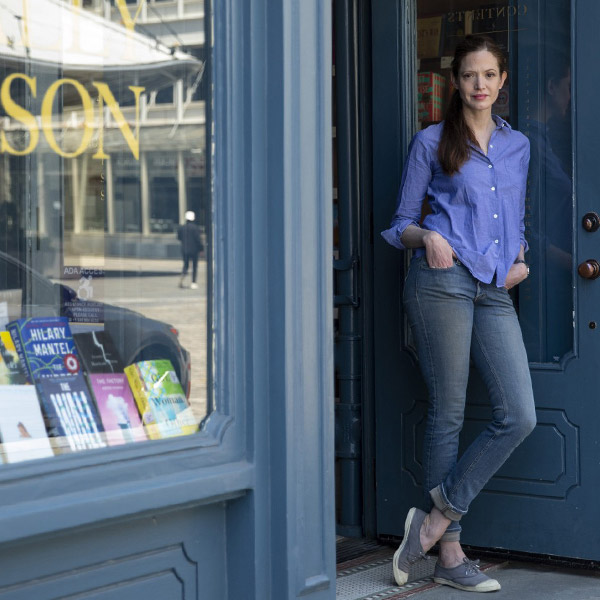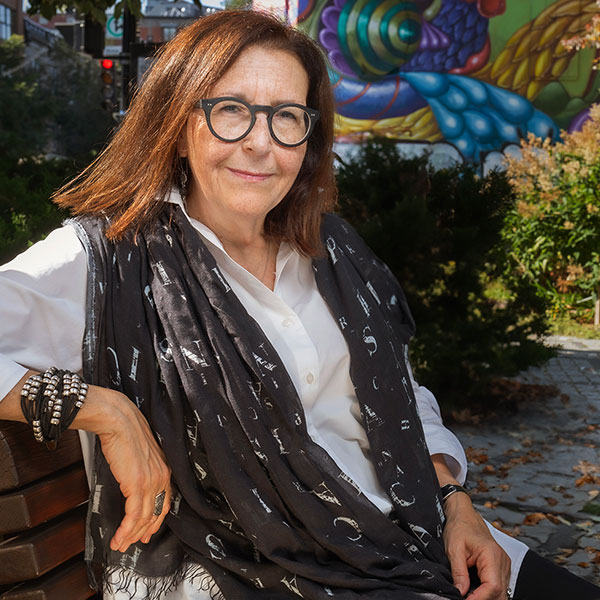If Ziya Tong, MA’99, did her job right, once you read her book The Reality Bubble: Blind Spots, Hidden Truths, and The Dangerous Illusions That Shape Our World, you’ll feel shaken. You’ll want to reexamine the way you see the world. You’ll want to make some changes.
But you won’t be totally bummed out.
“I wouldn’t want to pick up a book and have someone wag their finger at me and tell me how to live,” says Tong, a science journalist who co-hosted the Discovery Channel’s Daily Planet for 10 years. “I wanted to write something that was fun, something that brought a sense of awe and enchantment to people.”
Given the often dire subject matter – much of the book deals with the damage that humans are inflicting on the planet – it’s remarkable how well Tong meets her target.
“Considering how much she gets through, the tone is light and accessible. It feels like being shown around a fascinating exhibit by an enthusiastic curator,” declared The Guardian in a recent review.
Margaret Atwood and her fellow jurors for the 2020 RBC Taylor Prize would seem to agree. The Reality Bubble is one of the five finalists for the $25,000 prize, which highlights outstanding works of Canadian non-fiction.
The book examines humanity’s blind spots, the things that we don’t quite perceive about the world we live in. Some of these blind spots relate to our biology. As Tong notes in her book, we struggle with the fact that “reality is not human-sized.” Huge things (like the universe that surrounds us) and tiny things (like the vast array of microorganisms that play a pivotal role in making the Earth hospitable) mostly elude our notice.
Our more troubling blind spots, the ones with dangerous implications, are societal in nature, says Tong. When it comes to things like where our food comes from, how our energy is produced and where our waste goes – the things that Tong describes as “our life support systems” – we tend to be cheerfully, willfully ignorant of the details.
In fact, Tong suggests in the book, we might be hardwired not to notice many of these things.
After chronicling some of the unsettling and deeply disquieting facts that surround the way our food is produced (Tong quotes Paul McCartney: “If slaughterhouses had glass walls, everyone would be a vegetarian”), she writes, “With food there are things we’d rather not know. And here’s the rub: we know we’d rather not know. Scientists have found that our brains will shut down information that doesn’t make us feel good, or that causes stress, which is one reason we tune out suffering.”
The book is informed by the many years she has spent working as a science journalist. “I was starting to see the world in a very different way because I was seeing it from the perspectives of all the scientists I was working with and speaking to,” says Tong. “And [those interactions] were revealing a deeper picture of the world that the average person wasn’t able to see.”
But even scientists struggle to see the big picture sometimes. “As a science broadcaster, I get to talk to the smartest people in the world – like really, really, ridiculously smart people – and many of them couldn’t … answer basic questions about the systems that keep us alive. We are all so specialized these days. We’re not big-system thinkers, essentially. And we need to learn to become system thinkers. We need to have a better understanding about how to connect the dots and how everything kind of interconnects. When we’re too specialized, when we’re too focused on our own little departments, we’re going to run into a lot of trouble.”
When asked what surprised her the most as she did the research for the book, Tong laughs. “The value of human [excrement] really surprised me!” There is a lengthy section about poo in the book and it does make for interesting reading. Human excrement was once so valued as a fertilizer in places like Japan, that landlords would offer lower rents to larger families who were capable of producing more of the stuff.
While The Reality Bubble raises alarms about the way we’ve constructed the life systems that sustain us, Tong also cautions readers to pay attention to the ways in which we are using some of our technological advances. Her chapter on the rise of sophisticated surveillance technologies would definitely give George Orwell the heebie-jeebies.
“One of the key statements in the beginning of the book is, ‘In the 21st century, there are cameras everywhere – except for where our food comes from, where our energy comes from, and where our waste goes,’” says Tong. “And so, I wanted to highlight that, yes, we don’t understand fundamentally what our life support system is, but boy, oh boy, do we seem to be monitoring ourselves in a really hyper-accelerated and dominant way.”
While the book is, in many ways, a deadly serious plea for us to pay more attention to the ways in which we are affecting our world, Tong covers a lot of ground in ways that are both unexpected and entertaining. Readers discover how radiocarbon from nuclear bomb blasts helped solve a forensic mystery, and why British hikers have “the right to roam” through Madonna’s U.K. estate.
Still, there is no escaping the fact that Tong’s book deals with many disturbing themes. At one point, she notes that every 150 kilograms of product that we see on store shelves results in another 3,000 kilograms of waste that we don’t see. Quoting estimates from the World Wildlife Fund (she recently stepped down as the vice-chair of WWF Canada and joined the WWF’s international board), Tong points to a 67 per cent decline in wildlife populations around the planet since 1970.
“I think the years ahead are going to be incredibly difficult,” says Tong. “We are going to suffer from food shortages, we’re going to see mass migrations of people because of drought, we’re going to lose a lot of our natural resources – that’s already happening and it’s going to accelerate.
“I think of my grandfather, though, who was alive after World War II, and he wasn’t contending with a situation that was on its way to becoming catastrophic like ours is, he was in a situation that was totally catastrophic. He was in a world that was filled with famine, rubble, absolute chaos and destruction – and yet his generation and the generation after his were able to rebuild [that world] into the world we have today.
“We’re in a very, very dangerous time,” says Tong. “I’m no Pollyanna about that. But I definitely have a sense that we’re waking up at the right moment.”


